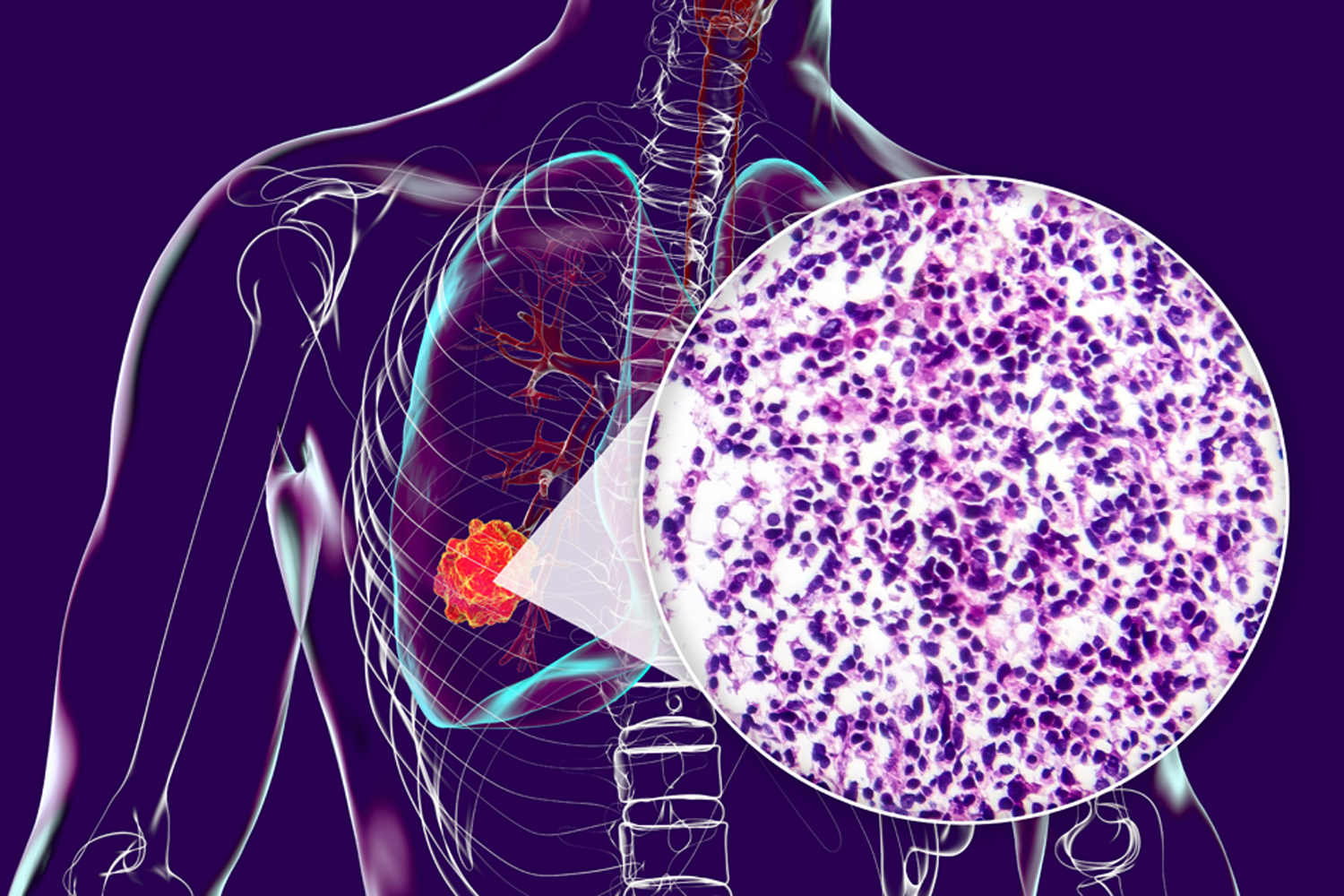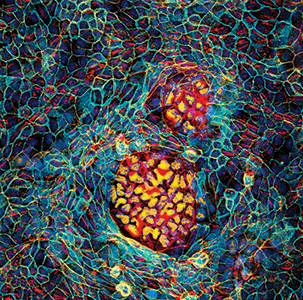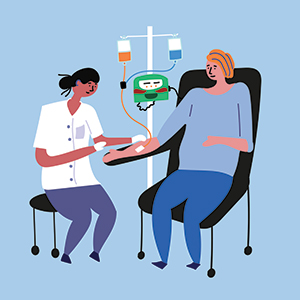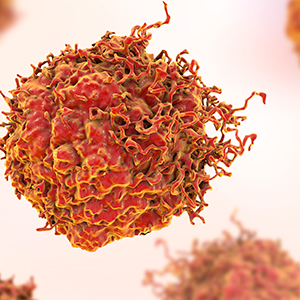-
Telling Your Children About Inheritable Cancer Risk
Letting children know they might have a mutation that increases their risk for cancer can be a challenge for patients. Experts stress there is no right or wrong way to share the information.
by Marci A. Landsmann
-
From the Editor-in-Chief
Human Papillomavirus Vaccines: Bad News, Good News and Great NewsIncreased vaccination rates can help reduce cervical cancer as a worldwide health threat.
by William G. Nelson, MD, PhD
-
Turning Up the Heat on Cancer
Researchers are working to expand the benefits of immunotherapy by making “cold” tumors “hot” so they can respond better to treatments.
by Kendall K. Morgan
-
BRCA: Who Should Be Tested?
Genetic testing for mutations in the BRCA1 and BRCA2 genes creates opportunities for cancer risk reduction. But 25 years after the mutations were discovered, some who could benefit from testing are still left out.
by Sue Rochman
-
Forward Look
Early Chemotherapy Dose Reductions May Affect Breast Cancer OutcomesNew study explores impact of lowering dose due to side effects.
by Jane Langille
-
Forward Look
Screening for Lung Cancer in Rural AreasPrograms aim to increase awareness of benefits.
by Sue Rochman
-
Forward Look
Targeted Treatments for TotsNew law mandates that cancer drugs get tested in kids in clinical trials.
by Sharon Tregaskis
-
Forward Look
What’s Next? Winter 2019/2020Treating prostate cancer with fewer side effects.
by Bradley Jones
-
Exploring Immunotherapy for Triple Negative Breast Cancer
Following the approval of the first immunotherapy for breast cancer by the U.S. Food and Drug Administration in March 2019, experts at the San Antonio Breast Cancer Symposium discussed avenues for further development.
by Marci A. Landsmann
-
Possible New Treatments for Patients With Metastatic HER2-Positive Breast Cancer
Studies presented at the San Antonio Breast Cancer Symposium show additional treatment options.
by Marci A. Landsmann
Cancer Talk
Biotin Supplements Can Skew Cancer Lab Results
Products containing biotin can alter lab tests for people during and after cancer treatment.
by Laura Gesualdi Gilmore
Connecting More Patients to Cancer Clinical TrialsAACR conference brings experts together to discuss strategies to reach people historically left out of cancer research.
by Eric Fitzsimmons
Treatment Combination Improves Survival in EGFR-positive Lung CancerAdding chemotherapy to targeted therapy improves outcomes for people with advanced EGFR-positive non-small cell lung cancer.
by Sandra Gordon
Lessons From 20 Years Living With CancerMultiple myeloma survivor Jonathan Gluck reflects on uncertainty, and the scientific progress that has kept him living with cancer for more than two decades.
by Eric Fitzsimmons















